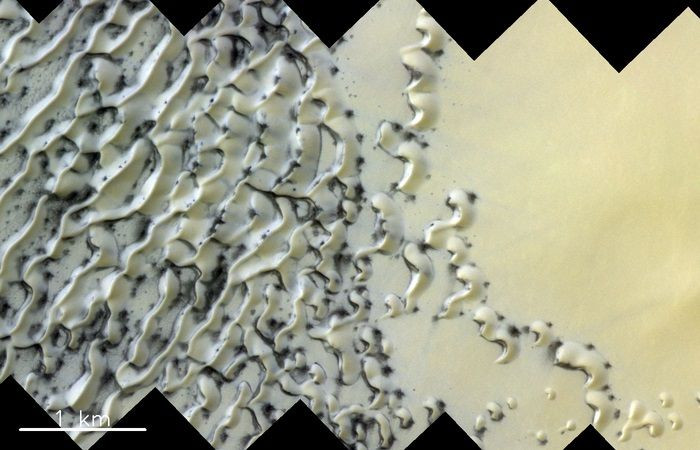NASA Mars Alien News: These Are The First 'Extraterrestrials' Of Red Planet

One of the main goals of NASA’s Mars mission is not only to find a suitable habitat for men to live on outside of Earth but also to finally prove once and for all, that there is life away from our home planet.
However, despite recent efforts and discovering elements like water on the Red Planet, we have yet to hear about any solid evidence of life on Planet Mars. Now a new study reveals what could very well be the first “alien life” to thrive on the planet - microorganisms from Earth.
According to a report from Futurism, a new study reveals that as part of the plans of starting a human colony on the Red Planet, scientists may first need to contaminate Mars with microbes from Earth. In a paper published in the journal FEMS Microbiology Ecology, it was pointed out that bacteria, viruses, and fungi should first be spread on the Red Planet to help support many of life’s processes back here on Earth.
Per Jose Lopez, a professor at Nova Southeastern University and one of the proponents of the study, an approach to planetary colonization can begin with studying microbes that could help support life in alien environments.
“Life as we know it cannot exist without beneficial microorganisms. To survive on a barren (and as far as all voyages to date tell us) sterile planets, we will have to take beneficial microbes with us,” Lopez said.
Although there is premise on the idea of contaminating Mars with alien microbes from Earth, the study contradicts NASA’s strict no-contamination guidelines which the space agency, along with other international bodies, have closely followed for decades. And for good reason.
Much like the use of medical equipment which is kept sterilized to avoid contaminating a clean environment, the same idea is being applied to space equipment brought to Mars. Scientists said that humans can’t afford to spread germs or microbes from spreading which they can’t contain eventually.
However, Lopez and his team said that doing just the opposite could have a positive effect needed for humans to survive on Mars.
“Microbial introduction should not be considered accidental but inevitable. We hypothesize the near impossibility of exploring new planets without carrying and/or delivering any microbial travelers,” he said.
© Copyright IBTimes 2025. All rights reserved.





















